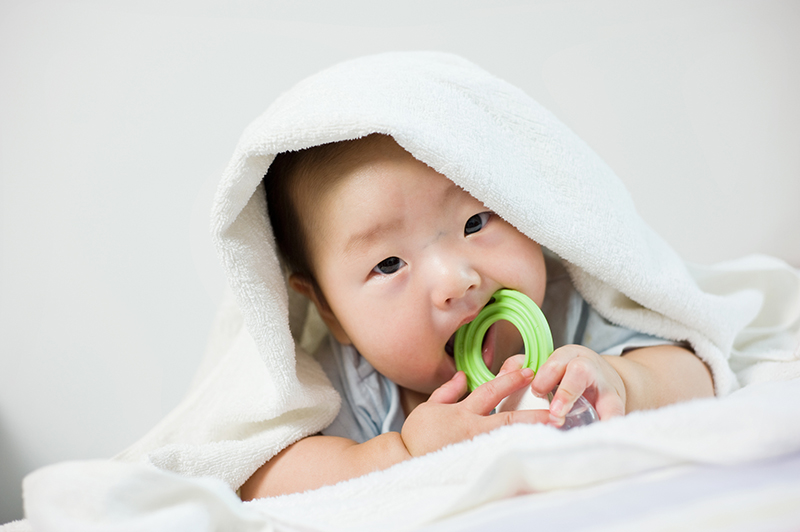Families For Life | Oral Health for Infants

Here are some tips on making your child's teeth sparkle!
Your baby's first teeth, usually the lower front-ones, start to appear when he is about six months old.
The whole set of baby or milk teeth will be fully formed when your baby is about three years old. This set of milk teeth will gradually be replaced by adult teeth from about the age of 6 years.
Teething
As your baby's milk teeth begin to form, your baby may experience some discomfort, increased drooling, loss of appetite and become irritable.
To alleviate your baby's discomfort, provide him with a clean and cool teething ring or a wet face cloth to chew on. There are also gels and ointments that can soothe the affected areas, however it is important to consult your doctor or dental surgeon before using them.
Baby bottle tooth decay
Do not let your baby suck on a bottle of milk or sweetened drink while putting him to sleep. The sweetened drink will pool around his teeth and cause tooth decay. The decay can develop quickly and spread to the neighbouring teeth.
This form of tooth is called bottle caries or baby bottle tooth decay (BBTD). The decay usually starts with the upper front teeth, and in severe cases, the back teeth will be affected as well.
When using pacifier, do not coat them with honey or other sweetened drinks and leave these in the mouth as they can also cause tooth decay.
Cleaning your baby's mouth
Before your baby has teeth, wipe his gums and tongue with a moist cloth after each milk feed. Once your baby's teeth appear, you can use a small soft toothbrush to gently clean his teeth. Do not use toothpaste until your baby knows how to spit so that he does not swallow the toothpaste.
It is important to get into the habit of brushing your baby's teeth twice a day, once in the morning and once at night before sleeping from young.
Contributed by:
Health Promotion Board